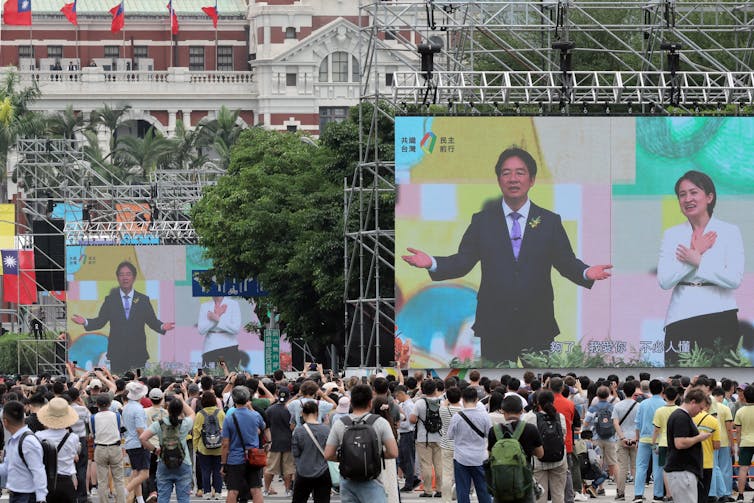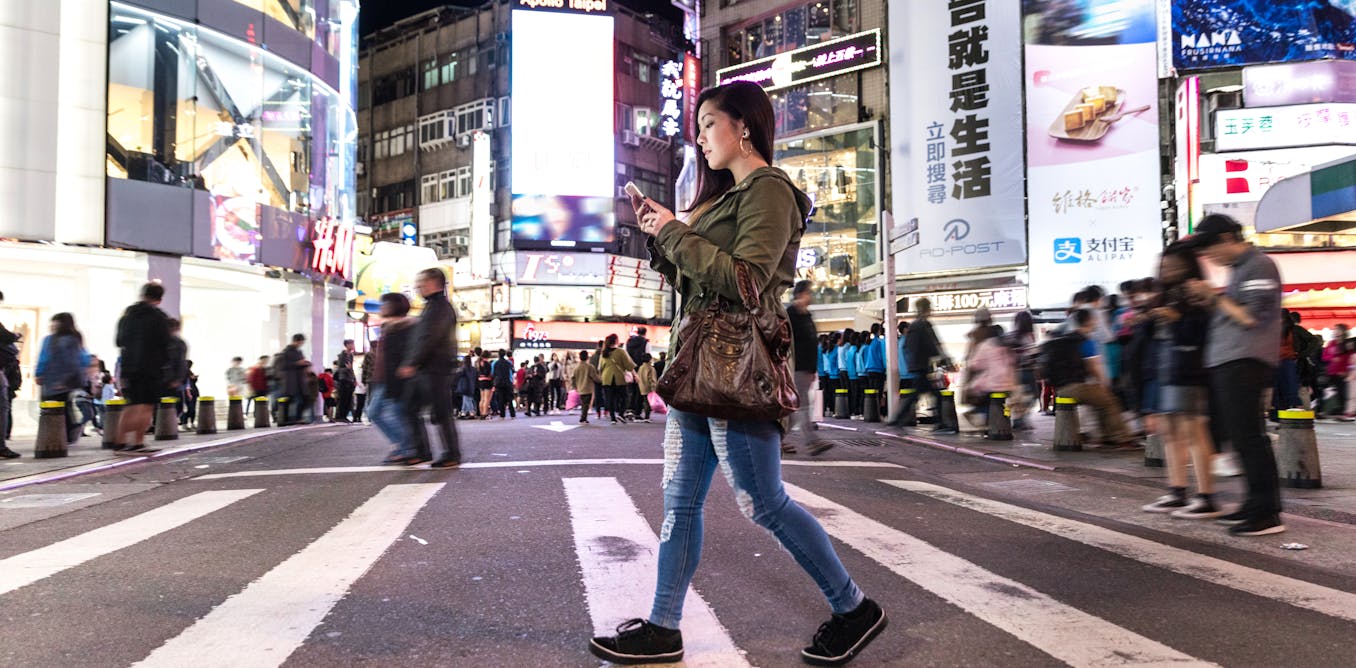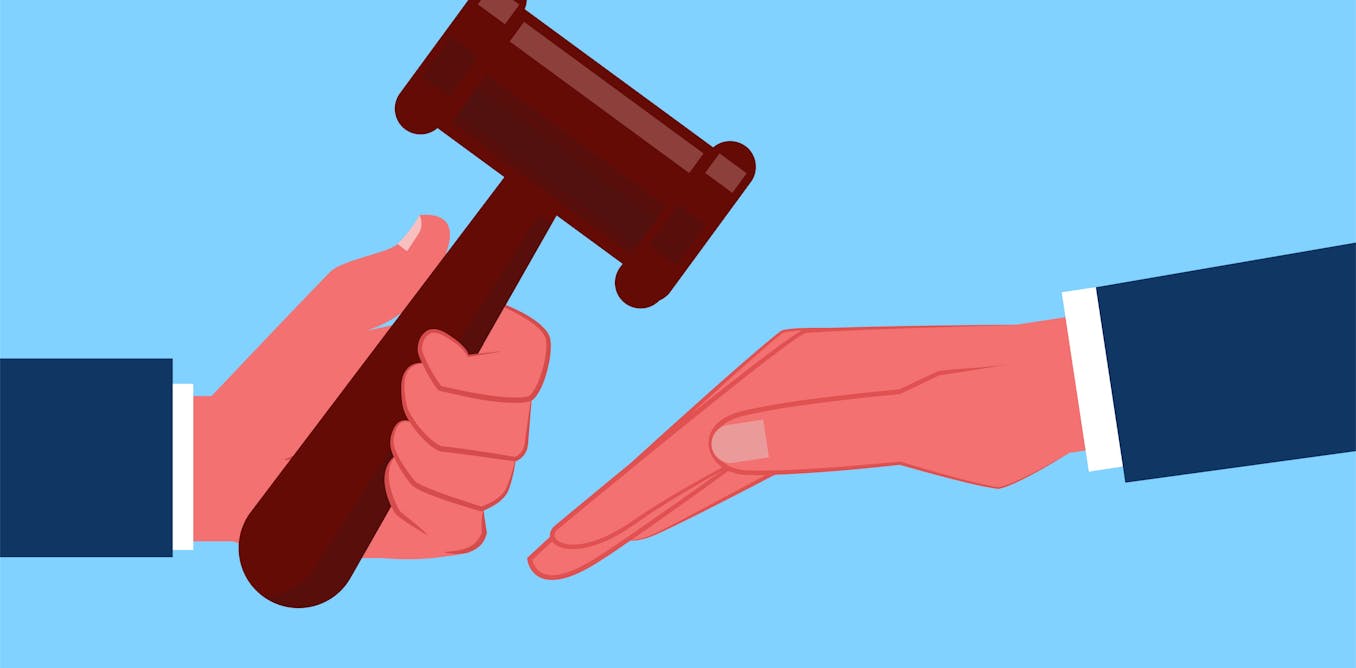Chinese regulators are in the process of wrapping up a two-thirty day period “spring clean” of the country’s social media.
Introduced on April 23, 2024, by the Cyberspace Administration of China, the hottest Qinglang campaign – the literal meaning of which is “clean and bright” – aims to penalize Chinese social media influencers and web superstars considered to be flaunting wealth or intentionally showcasing a magnificent life designed on dollars to draw in followers and targeted traffic. Its achieve goes over and above the conduct of social media users on the mainland, with Taiwanese influencers feeling the warmth, also.
China is significantly from on your own in expressing official alarm about the perceived harms of social media. The U.S. govt on June 17 signaled its motivation to slap warning labels on platforms these kinds of as TikTok, X and Instagram. But whilst U.S. efforts are framed as shielding the psychological health of people, it is the nicely-being of China’s culture that is the concentration of Beijing’s crackdown – and regulators there are heading further than mere warnings.
Next the Cyberspace Administration of China’s directive, a variety of Chinese social media platforms blocked the accounts of influencers these as Wang Hongquanxing, who has gained the nickname “China’s Kim Kardashian.”
Wang appears to have been censored for bragging about his extravagant apparel and other luxury products. And he isn’t by itself. Fellow influencer Bo Gongzi obtained similar treatement for displaying off Porsche automobiles, Hermes luggage and other unusual and highly-priced components. And Baoyu Jiajie disappeared from Chinese social media platforms immediately after flaunting her luxurious delicacies and lavish homes.
Violation of on-line expression?
Chinese official media defended the crackdown as a shift against revenue worshipping and what Beijing describes as “toxic traffic” – or attracting on the internet supporters for the purposes of earning cash.
Analysts such as Yao-Yuan Yeh, a Taiwanese professor of political science from St. Thomas College, have argued that the cancellation of the prosperity-flaunting influencers is not simply just motivated by a wish to secure community morality. Instead, it serves the purpose of mitigating the Chinese public’s expanding perception of relative economic deprivation, exacerbated by China’s current slowdown.
Whilst Ye’s place is valid, China has been punishing wealth-flaunting influencers for a very long time, extensive right before problems began to crop up more than the condition of the country’s overall economy. It reflects wider fears in Beijing that social media could be used to endorse sights it sees as subversive.
It ramped up in 2014 with the cancellation of Guo Meimei.
STR/AFP via Getty Photographs
Guo is an world-wide-web superstar identified for her screen of pictures displaying a lavish life-style, such as driving a Mercedes and possessing a big mansion.
The actions from prosperity flaunting come amid a a lot more normal crackdown on what Beijing sees as morally problematic behaviors, such as viewing pornography, gambling, drug use, vulgar livestreaming and exhibiting contempt for minimal-cash flow citizens.
The formal marketing campaign has gained wide support amongst a normally conservative community it is not just getting compelled from over.
Chinese social conservatism in this regard leans on a centuries-outdated preference for equal distribution of wealth, mirrored in the Confucian idiom that political leaders must “not fret about scarcity, but somewhat unequal distribution.”
And a lot of polls show the authoritarian Chinese federal government enjoys powerful community assist and believe in.
As MIT political scientist Lily Tsai has argued, Chinese people’s expressed help of their authoritarian government is not only out of fear of political retaliation or satisfaction with extensive-time period financial achievements. Instead, the Chinese Communist Party is also provided credit history for its potential to satisfy the public’s powerful drive for retributive justice.
That is, Chinese people today by and large assistance their federal government for its use of punishment from those who have operate afoul of ethical values shared by leaders and common people alike – even if it restricts sure private liberties.
Taiwanese influencers
This public assist for measures that crack down on social media acts deemed contrary to Chinese values also serves as a political instrument to enhance the Chinese Communist Party’s worldview.
As specialists in Chinese cultural politics, we have observed how, in specific, China is exerting force on Taiwanese social media influencers to echo and help its campaign versus showy on the internet shows of prosperity. Far more broadly, China is leveraging social media to foster nationalistic assistance and to additional its agenda for the island democracy’s reunification with the Chinese mainland.
The Chinese government has tightened the management of cyberspace by specifically or indirectly pressuring stars and influencers to publicly help professional-govt values and policies.
This takes the form of a stress marketing campaign from the new Taiwanese president, Lai Ching-te, who was elected in January inspite of some Taiwanese voters’ concerns in excess of his professional-independence views.

Image by Yasuyoshi Chiba/AFP by way of Getty Visuals
On May 20, Lai emphasized in his inaugural presidential address that “the Republic of China (Taiwan’s formal title) and the People’s Republic of China are not subordinate to every other” – comments taken as an unapologetic insistence on Taiwan independence.
China Central Tv, an official media outlet in China, revealed a post on its social media account to alert the Lai administration that “Taiwan independence was, is, and will never ever be feasible. China will eventually realize finish reunification.”
Several Taiwanese amusement superstars, who run generally on the mainland, shared the CCTV submit with their followers to clearly show their assistance of China’s reunification with Taiwan. CCTV in transform reposted their messages, praising the “patriotic” Taiwanese famous people. This indirectly pressured other Taiwanese celebrities to publicly declare their stance on reunification.
Current analysis demonstrates that, on typical, Taiwanese superstars repost formal messages a lot less routinely than celebs from the mainland and Hong Kong. However, the frequent political signaling by celebs on Chinese social media implies the growing politicization of common lifestyle.
An on-line army
Both the crackdown on on line displays of wealth and tension on Taiwanese influencers replicate acknowledgment in Beijing of the energy of social media.
As of 2022, China has the largest quantity of web and social media consumers – about 1.02 billion, according to the most up-to-date studies. Chinese men and women count on several social media platforms this kind of as Weibo, WeChat, Xiaohongshu and Douyin for news and info – something President Xi Jinping, who arrived to electrical power in 2012, is nicely informed of.
The most current “spring clean” of Chinese social media is not the very first to acquire area underneath Xi’s view and is not likely to be the past. Authorities in Beijing know that, if regulated tightly, social media can be made use of to amplify its information but if remaining unchecked, it could result in an significantly subversive and chaotic cyberspace.




